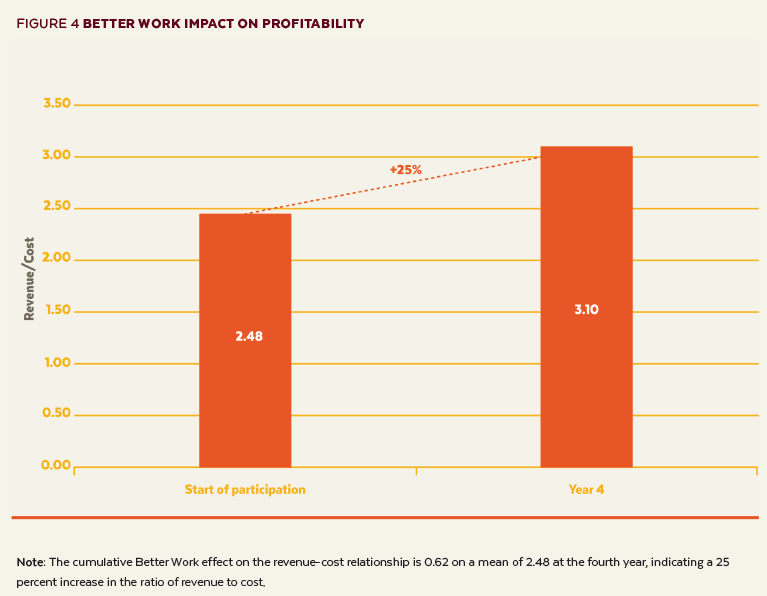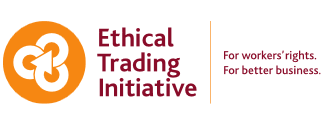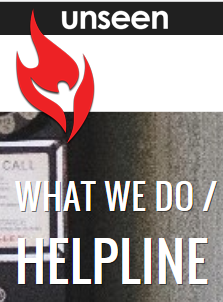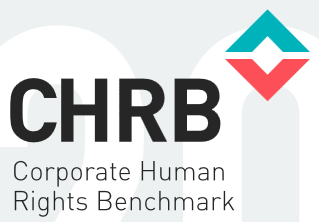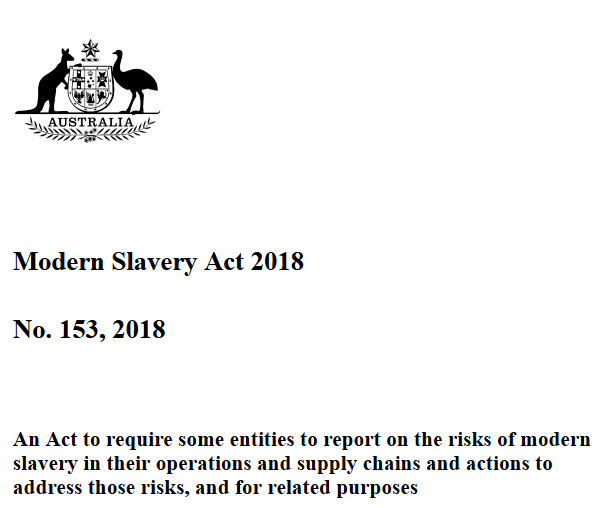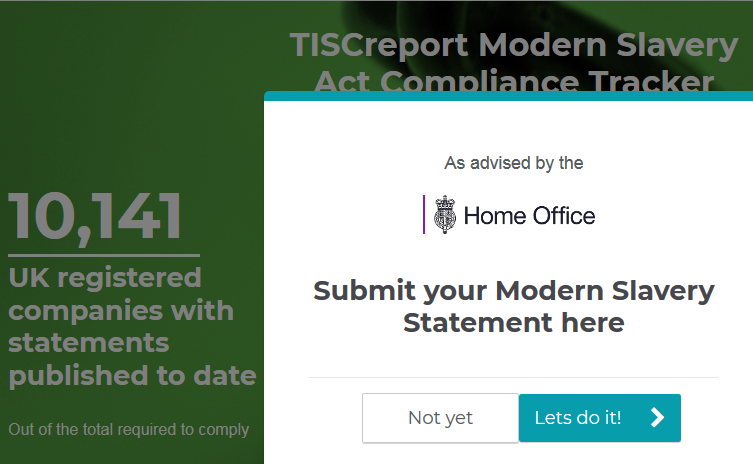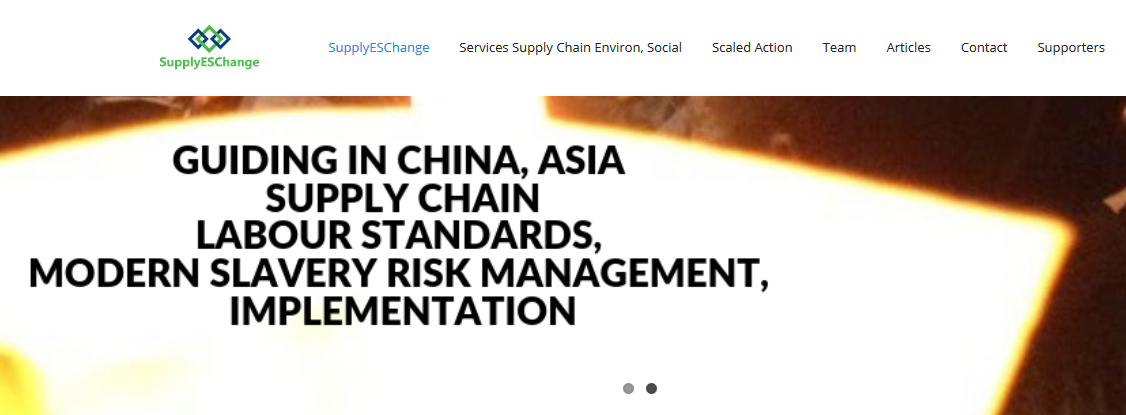A LIVE online Course delivered 1hour a week
Step-by-step guidance and support in How To from an experienced practitioner and trainer, for a small-group of participants (capped at only 5 for shared learning).
Highlights:
-Get updated on the latest modern slavery and human rights (labour standards) risks in China and Asia supply chains, new laws, and legal cases to make the business case internally; and
-Be trained, coached, and gain direct advice for your programme from an experienced Human Rights and Responsible Sourcing professional; who will guide and support you to learn:
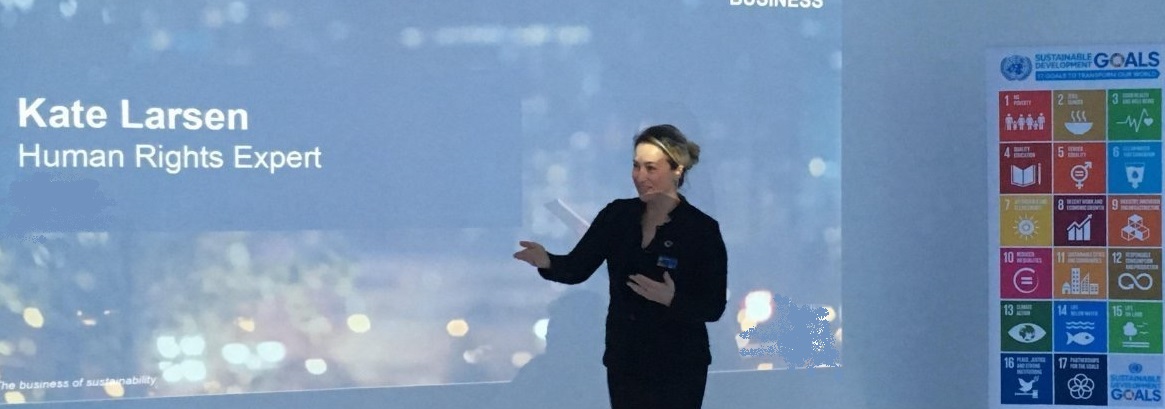
-How To manage supply chain modern slavery and labour risks; and
-How To generate verified Social Impacts and results in productivity and cost reductions; and
-How To improve your company Modern Slavery Act statement to meet the increasing expectations; and
-How To Human Rights Due Diligence (HRDD) for supply chains through creating or improving your Responsible Sourcing programme to the latest expectations.
The course Leader Kate Larsen has delivered supply chain Modern Slavery, Human Rights & labour standards programmes, consulting and training for 15 years. See Kate Larsen on Linkedin here.
In this Course You will be provided:
- Step-by-step training and Insights over a 5 week long Course providing you updates in each weekly one hour small group webinar on new risks, training in How To manage them, and support and coaching to implement relevant learnings in your business:
- Pre and post webinar Guidance materials (Ppt slides, links, guidance pages, etc) emailed and online discussion support;
- Each week hear from another experienced field expert and about risks and what works for how the best brands manage them on the ground to increasing stakeholder expectations;
- Question answers and coaching in between by phone or email with the Instructor, with other experienced field Experts introduced on the course, or Course Group peers or posted in the Linkedin Group
- A course launch one on one Instructor consulting and advisory call or meeting to discuss specific challenges faced by your business;
- A call to review in-depth how to overcome your business challenges, or to review audit reports, review a draft Modern Slavery statement or other materials near course completion, and as
- Ongoing support to capture and implement in your business the course learnings, and deliver Results and Impacts.
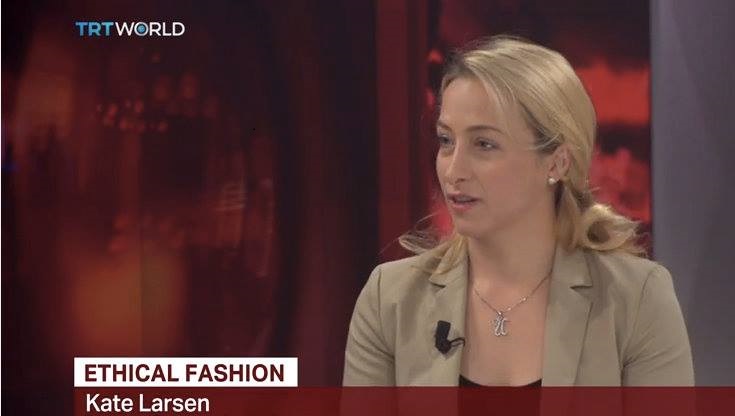
The course leader will introduce participants to further highly experienced field Experts on the ground in China, Bangladesh and across Asia through the course for the latest updates and insights.
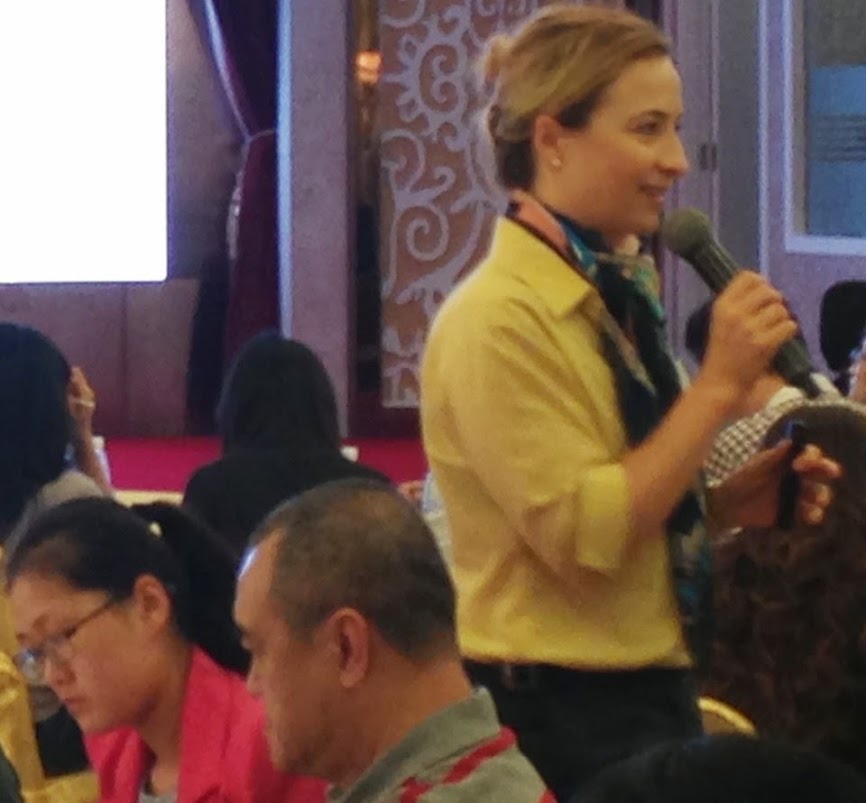
Recordings of the course Webex classes and podcasts will be made available for participants, and to share with their teams, via long-term online access for revision and internal training needs.
Course Modules
The course teaches in-depth the Human Rights Due Diligence steps and How To implement these in the field, and in Responsible Sourcing programmes
PRE-COURSE Bonus: All participants are eligible for a OneOnOne pre-Launch one hour call (or meeting if in London) with Course Tutor Kate Larsen, to review your company status, challenges and queries and Goals for the Course, including specific topics and issues you'd like covered by the Tutor and experts in the Course.
Classes and Modules:
Class ONE:
Module 1: Policies and new expectations for Modern Slavery & Human Rights Defenders. 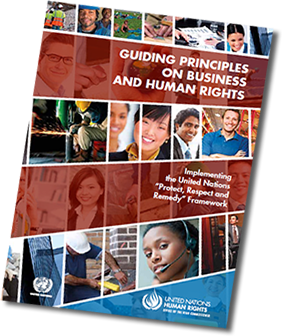
The course will introduce the UN Guiding Principles on Business and Human Rights launched 2011, how this "soft law" is slowly moving into "hard law", and what this means companies increasingly are expected to do in terms of Human Rights Due Diligence for supply chain labour standards risks.
We will review long-standing "sweatshop" type poor labour conditions risks, as well as discuss new risks such as for Uighur people in China, and from the increase in south Asian workers to Japan, Taiwan, Korea, Malaysia supply chains. We will discuss how these Modern Slavery risks have led to the "no-fees" movement and how companies creating policies for this are actually implementing it in practise (including the "who pays?" question). 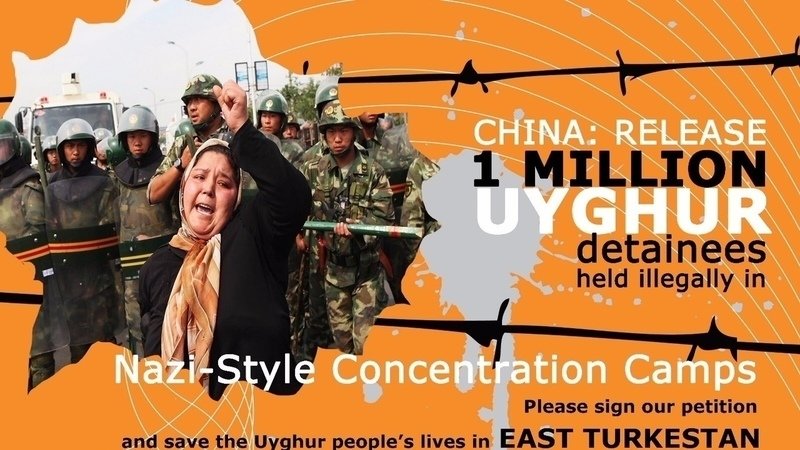
New expectations from the Corporate Human Rights Benchmark (CHRB), KnowTheChain and other ESG (Environmental, Social, Governance) investment world assessments of listed and Private Equity owned companies will be introduced.
Some feedback can be provided on draft policy upgrades.
Module 2: Lawsuits, Assessments, robust Audits and Databases.
Why do robust Social Audits matter? 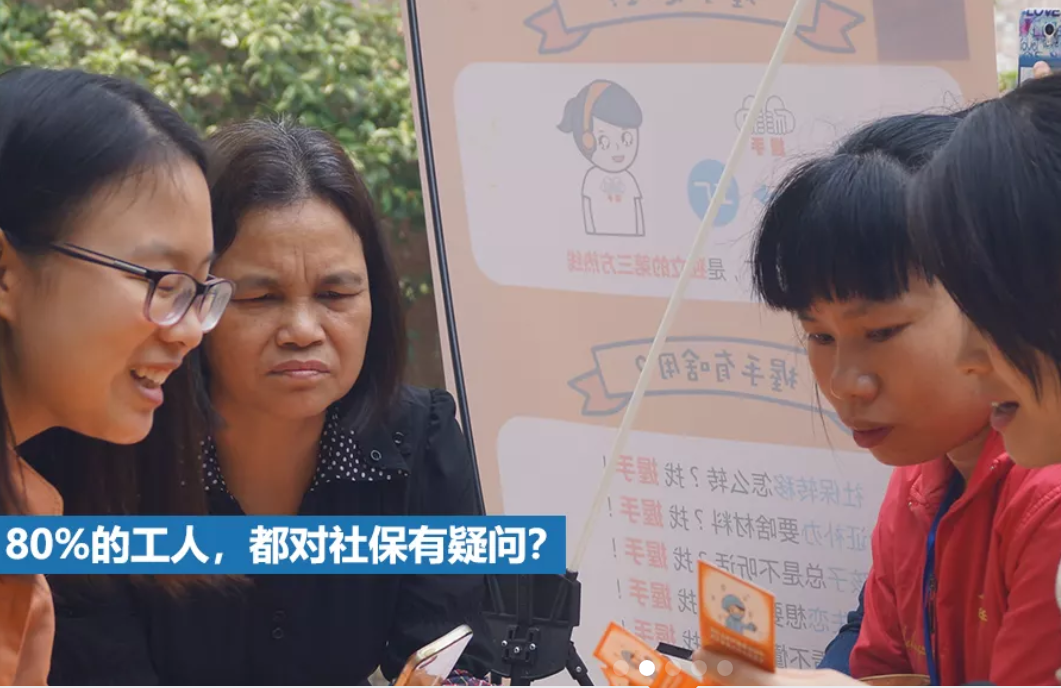
Participants can use slides provided internally to educate their teams.
FIELD EXPERT INTERVIEW: With a leading NGO expert on new policies businesses require and/or highly experienced auditor. A chance for participants to gain independant insights and answers to their questions.
Class TWO:
Module 3: Layering with Capacity Building to support suppliers, reduce risks and gain productivity benefits.
Why companies introduce this, who pays (free options), how it improves monitoring to reduce risks, KPIs, productivity and other business benefits, worker rights benefits. Different options across Asian country supply chains (China, Vietnam, Bangladesh, Japan, Cambodia, Indonesia, India, etc).
Participants can be provided insights into relevant online and free training available for suppliers.
Module 4: Collaboration and Multi-Stakeholder Initiatives.
The course will review Multi-Stakeholder Initiaitves and why companies are expected to participate in them, and the various types of supply chain labour standards initiatives (especially for Asia manufacturing supply chains) including certifications, their strengths and weaknesses. We will review how they are initiated, who pays, how to use participation to improve supply chain conditions and reduce costs, and to deliver HRDD. The course will profile various initiatives across Asia including in China, Bangladesh, Cambodia, etc. We will review why companies join the UK Ethical Trading Initiative, USA based Fair Labor Association, European based Amfori (BSCI), SAI, ICTI, Fairwear or the Responsible Business Alliance (RBA) and how to gain Value from participating in these or other Initiatives. We will discuss the role of Brands and Buyer, and how leverage can and is expected to be used.
We will review and critique strengths and weaknesses of the most relevant initiatives for participants industries and supply chain footprints.
FIELD EXPERT INTERVIEW: With a leading capacity building delivery expert working with companies. A chance to hear what leader companies are doing, or how smaller or earlier stage companies initiate this.
Class THREE:
Module 5: Layering Monitoring, Education, and Engaging with Worker Helplines.
Why many brands and firms buying from Asia factories have created partnerships to for many years provide these services for workers in key suppliers, who provides these services, and how to make rollout affordable (and through legal pre-competitive collaboration), have value, and support the responsibility of business to respect workers Human Rights including to Freedom of Association & Collective Bargaining.
We will discuss the basic Protocols needed for reporting, and how these can be developed to manage risks around these tools, and how helplines can partner with important stakeholders, even trade unions.
The course will also explain the new national UK Modern Slavery Helpline, and why this is operated differently to those used in some countries with different Human Rights situations.
Module 6: Multi-Stakeholder Initiatives (MSIs) and how they help companies deliver robust HRDD.
We will further review how supply chain labour standards collaboration Initiatives and MSIs are initiated, funded, used, track report, and how to start and participate in these. We will review their databases, protocols and how these are set-up, and more about the value of collaboration & with NGOs and other stakeholders. We will discuss when to engage police and services, and how to deal with modern slavery, sexual harassment reports, etc.
FIELD EXPERT INTERVIEW: With a leading Multi-Stakeholder Initiative which companies participate in. A chance to hear the latest risks they are seeing and new ways companies are responding.
Class FOUR:
Module 7: Delivering on the UN Guiding Principles on Business and Human Rights (UNGPs) in Supply Chains through using Leverage. 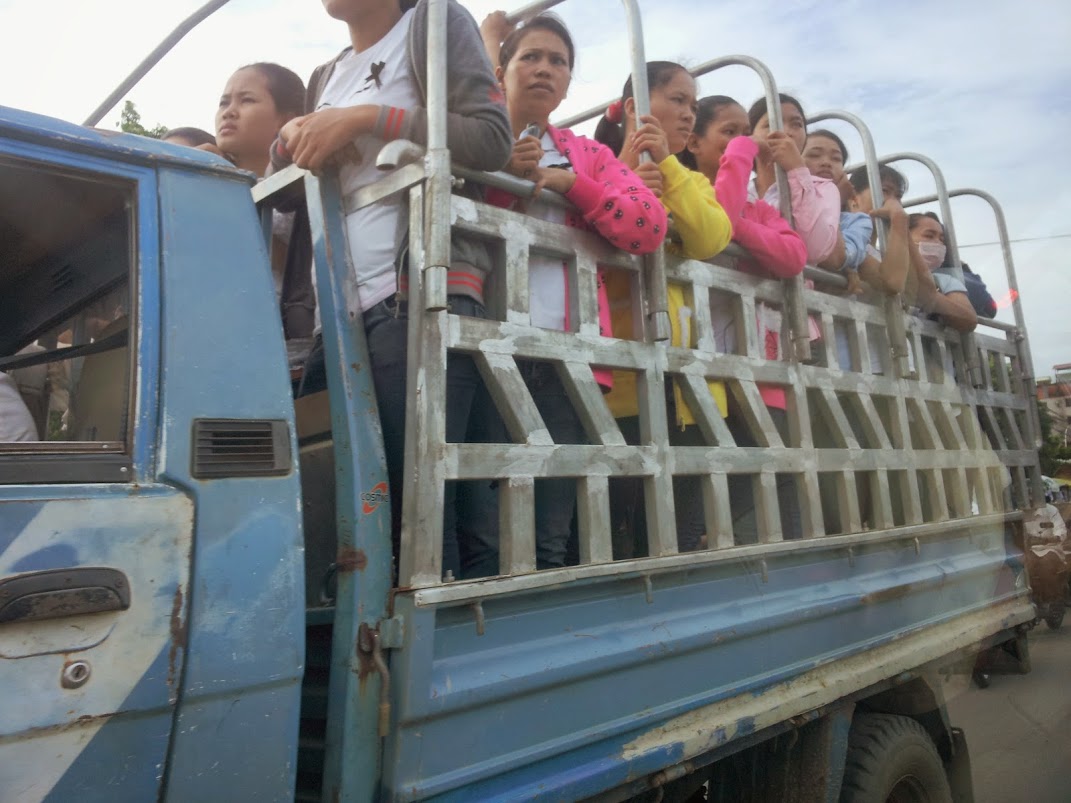
Course participants will be provided examples of where businesses have appropriately used their voice to influence supplier respect for human rights. We will also review further why pre-competitive collaboration matters, how to ensure it is conducted legally and how many brands have done so in various ways for many years, tips. Benefits and aspects for how to manage brand collaboration. How to show business benefits internally and report externally.
Module 8: Why and How to use Leverage and Voice and for Crisis management:
We will review further why companies are wncreasingly, and under the UNGPs, expected to use their leverage in collaboration or directly toward improved conditions for workers, country policies for labour standards, and examples of many buyers who have done this in China, Cambodia, Bangladesh, UK, USA, etc. In particular we willl review new expectations for Human Rights Defender Policies and examples of how these are used in pragmatic business appropriate ways.
FIELD EXPERT INTERVIEW: With field experts experienced in set-up and gaining business and social impact benefit from collaboration.
Class FIVE:
Module 9: Purchasing Practices and Incentives: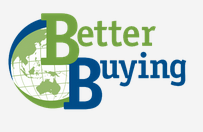
Module 10: The Transparency movement and what's next after the UK Modern Slavery Act (MSA).
We will review the UK MSA Transparency in Supply Chains, etc (TISC) reporting clause, it's California predecessor, Australia's upcoming MSA TISC, new laws in the Netherlands, France, USA, and potential new laws in Canada, HK, etc. We will review how companies can deliver Responsible Sourcing HRDD work toward meeting the new expectations for transparency of these new laws applying the tools introduced in the course and others relevant to participants company supply chain footprints. We will also discuss the role of country risk reviews and Human Rights Impact Assessments (HRIAs) and across all operations and onsite supply chains now that the Act brings supply chain labour standards risks into the Boardroom.
FIELD EXPERT INTERVIEW: With a leading NGO expert on new policies businesses are now required to have for Human Rights Due Diligence.
CLOSING CLASS: Each participant will be eligible to have draft new Policies or Programme plans reviewed before the course ends, and for a one-hour direct OneonOne call (with colleagues if best) to ensure Course Module learnings are understood, discuss company specific challenges and questions, and support implementation of Course Learnings.
Where relevant the Instructor can apply experience in reviewing your updated company Modern Slavery Act statement, toward the latest good practise.
OUTPUTS :
Participants will be Guided and Supporting through each Class and Module, guidance materials (including links), introductions to field experts, and in one-on-one emails or calls in How To: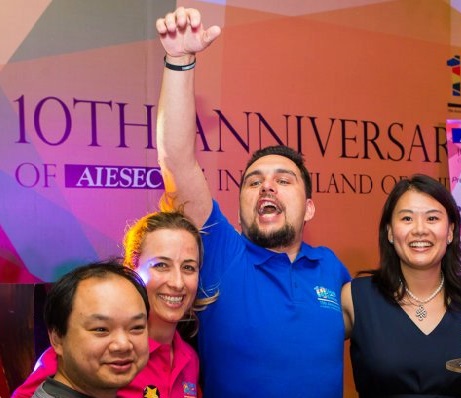
- Assess, influence remediation of when neccessary, and monitor Supply Chain labour standards risks including Modern Slavery;
- Do this to business Human Rights Due Diligence good practice standards;
- Update or create their Responsible Sourcing programme engaged in appropriate initiatives; and thereby
- Implement the course learnings for benefits for their suppliers, their workers, and their business.
Timing of Course Classes: When you register, you'll be asked to answer a quick Survey of your available times for the Course Webinars. The Webinars will then be offered in the times that work best for maximum participation by all 5 participants. For any webinars you can't make, all will be recorded online for you to watch at any time of your convenience (or just to rewatch if you missed something), and you can post questions in the group or email them to the Instructor. Participants should also be able to download them to their smart phone or other mobile device to view or listen to the Course Webinar classes offline or at a convenient time.
Instructor Kate Larsen
Experienced China Asia Supply Chains Human Rights professional trainer
-

Senior Instructor
Katie Larsen
Instructor Kate Larsen has worked on Supply Chain Labour standards risk monitoring and improvement (including modern slavery) for Human Rights Due Diligence for almost 15 years. Kate has consulted to and trained companies across many industries including food, footwear, energy, retail, apparel, and more. Kate led the Burberry Corporate Responsibility Asia programme development 2006-12 which supported Burberry leadership in the following years for it's sector in the DJSI (Dow Jones Sustainability Index) and high accolades for it's first Modern Slavery Act statement. Kate also worked as Director Responsible Sourcing Innovation and Engagement for a large listed US retailer and has collaborated with many international brands in leading initiatives, direct peer to peer collaboration, and setting up workgroups to combat modern slavery and improve supply chain labour standards.
More about the Instructor
Kate has trained and supported numerous business clients to understand new expectations and create and deliver an appropriate Responsible Sourcing programme and Modern Slavery Act statement and effort. Kate applies insights from work with civil sector leaders who set the standards business are expected to follow. For Human Rights Watch (HRW) Kate was appointed to a staff project role advising on how companies should respect supply chain human rights, where she gave input to OECD Guidelines, the Fair Labor Association (FLA) standards, and HRW guidance for business. Kate has worked on remediating modern slavery in supply chains for clients and businesses, and with the anti-slavery charity Unseen, and other NGOs such as Verite, Handshake and ICO China, SaveTheChildren China CCRCSR and actively with ILO Better Factories and ILO Better Work. For the World Bank Kate was repeatedly engaged as a Consultant to map and explain Bangladesh and Asia manufacturing supply chain labour standards and women's empowerment initiatives and create and deliver workshops engaging manufacturers, buyers, training initiative, government and other stakeholders to review ways to improve conditions.
Kate has supported companies of various sizes and industries, listed, private, and private equity owned to deliver improved supply chain Responsible Sourcing programmes and Modern Slavery Act statements to meet new expectations on business for Human Rights Due Diligence, reduce risk, and cause positive business and Social Impact. In ERM consulting, Kate was a Senior Consultant, then Principal Consultant advising companies on the Modern Slavery Act, the UN Guiding Principles on Business and Human Rights, risks in global and Asia supply chains and how to monitor them, and delivering rapid manufacturing site assessments and advisory on next steps for clients of all sizes, as well as ongoing coaching and training to other clients.
Kate speaks mandarin Chinese and lived in mainland China (Beijing) then Hong Kong many years and has visited, audited, trained to and worked with supply chain sites across Asia, particularly Japan, Vietnam, Cambodia, Bangladesh and India. Kate also speaks basic conversational Japanese and has visited and worked with many Japanese companies and factories.
Kate is Founder of SupplyESChange, connecting clients to her network of dedicated experienced, experts in supply chain labour standards improvement across Asia.
See https://www.linkedin.com/in/katelarsen/
Endorsements
Past clients and colleagues of Kate Larsen and SupplyESChange team endorse the good work guiding and supporting for supply chain labour risk management and Responsible Sourcing

Testimonial: implemented improving of factory working conditions
by Marcus Chung, Former VP Responsible Sourcing, The Children’s Place (Nasdaq: PLCE)

Testimonial "knowledgeable about European and Asia supply chain environmental and labour risks whilst pragmatic in working with procurement""
Michela Ferrero-Cuda, Course Director MA Luxury Jewellery Management and Consultant; former Product Development Manager, Jewellery, Burberry.

Testimonial "a pragmatic understanding of sourcing work"
Chris Kirkham, former Quality Assurance Director Aritzia, former Head Quality Management, Burberry

Testimonial "really understands Corporate Responsibility in the Asian context".
Ben Eavis, Vice President, Corporate Responsibility, Offshore at PVH; Former Head Corporate Responsibility, Burberry.

Testimonial "a leader in the industry of human rights and sustainability"
Nicole Bassett, Co-Founder at The Renewal Workshop; Former Patagonia Social Responsibility Manager


